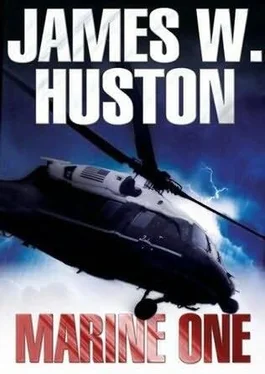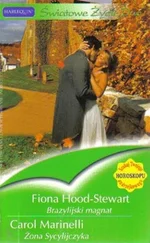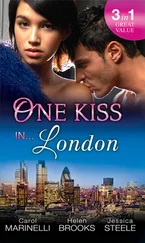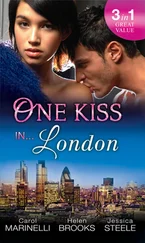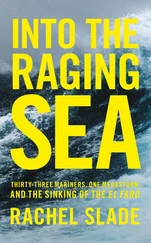"Wait one minute. I want you to be here when I open it."
She was hesitant, but said nothing.
I broke the seal of the Scotch tape on the back flap and opened the envelope. I pulled out a piece of paper and a key. On the piece of paper was written, If you're reading this, something has happened to me. I can't tell you what, 'cause I don't know. I also can't tell you if it was related to this case. I hope not. And I hope I didn't make a fool of myself, but I told you I'd take care of you so I'm going to. Then in large block letters he had written, J. Mark Grosvenor . Underneath was a home address, cell phone number, home telephone number, and pager. Taped to the bottom of the page was a key. I pulled the key off and looked at it. I wasn't sure what it was. I held it up. "Do you recognize this?"
Cherie took her reading glasses out of her purse and examined the key. "Well, I do. It's a key for a safety-deposit box at our bank."
"Is this from your safety-deposit box?"
She shook her head. "No, ours is a different number."
"You think this is another safety-deposit box at your bank?"
"Looks like it to me."
I looked at my watch and considered the implications of putting Bradley on the witness stand with no preparation. If anyone could do it, it was him. "Take me there. Now. We don't have any time to lose."
I stood up, put the key in my pocket, and said to Debbie, "Would you watch Wayne? Don't let him out of your sight, except for the bathroom. Seriously. Literally. Do not let him out of your sight. If anybody comes to the door looking for me or him, or anybody else, nobody's home. I'll call you on your cell phone, otherwise don't talk to anybody . Don't answer the house phone. Understand?" She looked alarmed at my intensity.
"I understand, but explain this to me."
"Later." I turned to Cherie. "Let's go. I'll drive."
As I started my car, I pulled out my cell phone from my glove box and texted Rachel, who was sitting next to Brightman in trial. She was probably pulling her hair out. I told her to call me at her first break and I headed off to D.C.
It was an awkward drive. I was actually surprised I'd never met Tinny's wife. Tinny talked about her in glowing terms all the time, yet I'd never met her. I didn't know how to even start a conversation with her. I finally thanked her again for going out of her way to track me down and give me something that she didn't know was significant. But she knew her husband well enough to know that if he thought it important enough to put in a safe and ask her to do it after his death, it was important enough for her to actually do it. She related that it had actually done her good to get out of the house and get out of D.C. to see the rest of the world. She hadn't been outside the District in almost two years. Tinny was always going outside the District in his Corvette, jetting here and there in airplanes, but she preferred to stay home in their small house. I asked her to tell me about their life together, the fun they'd had together. She relaxed and told me stories of their courtship and marriage, their early days when he was work-obsessed and she was repeatedly pregnant. They'd been in love for thirty years, and she still was. When he was killed, her life had been gutted and she would never be the same.
As we drove along, I continued to look at the cars around me. I noticed one that had been behind me the entire way. A fairly new Dodge Caravan. It had stayed fairly far back most of the time. But once it had come close enough for me to get a look at the driver. I had seen young Asian men drive all sorts of cars, but never a Dodge Caravan.
By the time we got to D.C. and headed toward the Northeast section, near Mercedes' Grill, I had almost forgotten about the trial. That was refreshing. As we turned down Tennessee Avenue, she said, "The bank is up there on the right."
We turned into the parking lot, found a spot, and walked into the bank. I followed her straight to the back left corner of the lobby, where they had a light wooden wall with a glass door that separated the safety-deposit boxes from the rest of the bank. She pressed a buzzer next to the door. A young black man appeared on the other side of the glass, recognized her, and smiled. He pressed a button on his side of the glass that released the door, and he pulled it open. We stepped through. "Hello, Ronald," she said, shaking his hand gently. "This is my friend Mike Nolan."
Ronald said, "Hello, Mrs. Byrd. I'm glad to see you. I'm really sorry about Tinny." His face clouded as he shook my hand as an afterthought. "I just can't believe it. I'm so sorry."
She nodded and fought back a tear. "Thank you. Would you give us a hand? I'm here to open a safety-deposit box."
"Yours and Tinny's? I wondered when you were going to come for it."
"No. Another one. Show him the key, Mike."
I handed Ronald the key, which he examined.
"Sure, let me check it. Was it listed under Tinny's name?"
"I don't know. I assume so."
He returned with the signature card in his hand. "It's in Tinny's name and yours." Ronald looked embarrassed. "But we've got a problem. The only signature on the card is Tinny's. To give you access I have to have the owner's signature."
I couldn't believe my ears. I said, "He gave me the key to this box and told me to retrieve something. I'm in the middle of a trial, and it may be evidence. Don't you recognize me?"
Ronald looked at me and suddenly realized who I was. "You're the attorney in the trial about the president's helicopter."
"Exactly. And Tinny was my investigator. He'd found something critically important, was killed, and left a note for his wife-" I pulled it out of my pocket. "Here's the note he left for her to give me in case he died. He wants me to have access to that box."
Ronald read it and returned Tinny's note to me. "That's amazing. There must be something really important in there, but I'm sorry, I can't let you into the box. The bank has rules. I can't change them."
I felt that old nemesis of mine, that white anger that I sometimes had to fight, raging up inside me. I had to pause for a moment. "Ronald, this is not the time to be a bureaucratic hero and screw me with rules. Let us into that safety-deposit box."
I had miscalculated. He felt the power that came from being able to deny an angry person his strongest desire. "I can't, Mr. Nolan. Sorry."
"You'd better get the manager."
Ronald said, "It won't make any difference. He's the one that told me never to change these rules. But worse, he's out."
I detected just a slight bit of joy in Ronald. It was total bullshit and I was not going to be deterred. "Is there anyone here senior to you, Ronald?"
"Assistant manager. Debra Hastings. She's over there."
I looked around, saw Debra, went back to the glass door, buzzed the button I'd seen him buzz, and slammed it open. I marched across to Debra's desk and interrupted a conversation she was having that was undoubtedly extremely important, probably somebody opening a new checking account. "Ms. Hastings. As the assistant manager, I need your help with a safety-deposit box immediately. This is an emergency. Ronald asked me to get you."
She looked at me like I was a lunatic. "I'm with a customer, sir, you'll have to wait-"
"No, I'm not waiting for anything. Get up, come with me right now to the safety-deposit-box area. I must insist."
"Sir, are you threatening me?"
"No. I am not. I am begging you."
She looked at this customer sitting in a chair that was right next to me who was trying to inch away from me and said, "Will you excuse me for just a minute, I'll be right back."
"No problem. Take your time," the customer said.
Debra got up and followed me to the safety-deposit-box area. She put her access card in front of the reader, and the glass door opened away from us. We walked in. Debra walked over to where Ronald and Cherie were silently standing. Debra was about forty-five, thin, and homely. I said to her, "My name is Mike Nolan. I'm an attorney involved in the trial over the crash of the president's helicopter. Do you recognize me?"
Читать дальше
